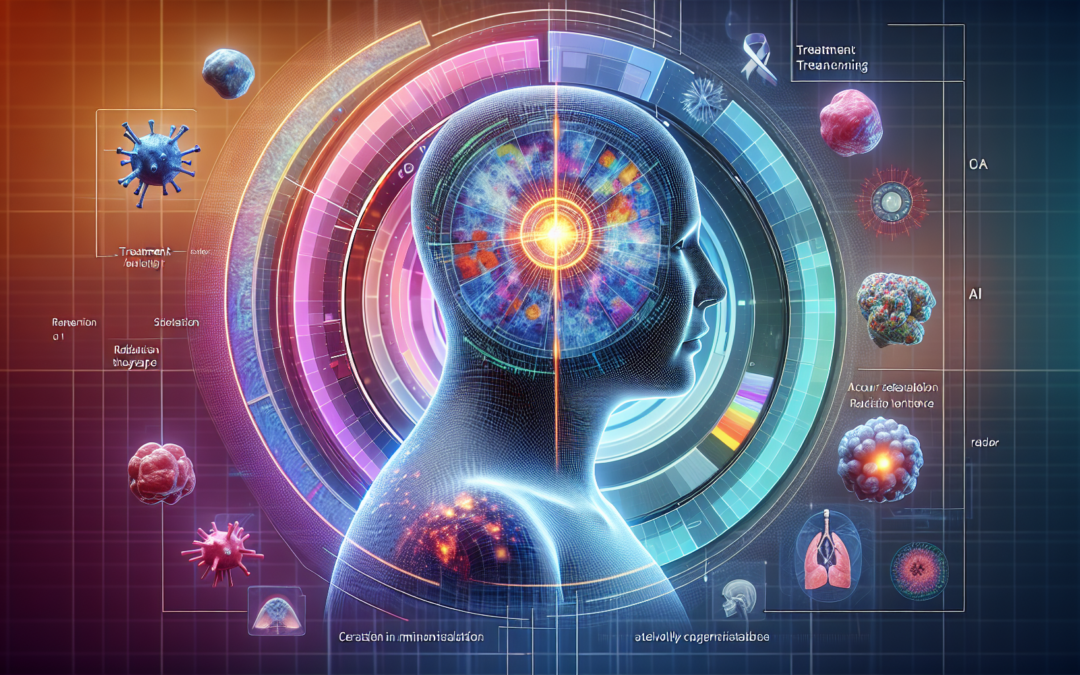AI and Radiomics: Transforming Radiation Oncology with Precision and Personalization
🌟 In the ever-evolving world of healthcare, artificial intelligence and deep learning are paving the way for unprecedented advancements in radiation oncology. These technologies are reshaping treatment planning with remarkable efficiency, transforming processes that once took days into mere hours. The result is not just faster care, but care that resonates with precision and hope for patients and practitioners alike.
💡 With AI’s enhanced accuracy in tumor and organ segmentation, radiation therapy is now delivered with exceptional precision. This technology empowers oncologists to target therapies more effectively, ensuring that treatments are not only timely but profoundly accurate. Such advancements inspire confidence in the precision of modern medicine.
🔍 A cornerstone benefit of AI in this field is its ability to ensure rigorous quality control and assurance. AI optimizes image-guided radiation therapy by actively monitoring tumor movement in real time, maintaining high standards of treatment delivery. The reliability of these advancements encourages a bright outlook for quality patient care.
📊 Radiomics is carving a niche in radiation oncology by integrating AI to predict treatment outcomes and tailor personalized plans. Through analyzing imaging data, radiomics provides valuable insights, bolstering oncologists’ decision-making with rich, data-driven support. The personalized approach promises a future of more effective and less invasive cancer care.
🤝 Despite these technological leaps, challenges like the necessity for vast, annotated datasets pose hurdles. Yet, collaborative efforts hold the solution. By pooling resources and sharing data, the field can overcome these obstacles, promoting more robust AI model development and ensuring the technology remains transparent and equitable for all patients.
👥 AI and radiomics usher in an era of personalized treatment planning, offering insights into each patient’s unique tumor characteristics and therapy responses. This specialization not only improves treatment efficacy but minimizes potential adverse effects, aligning with the compassionate core of medical practice.
👩⚕️ As AI continues to evolve, the role of radiation oncologists will be further augmented. By automating routine tasks and providing sophisticated analytical tools, AI liberates oncologists to concentrate on their most crucial role: patient-centered care and complex decision-making. This symbiotic relationship heralds a new dawn of medical collaboration.
🔒 In embracing these advancements, ethical considerations such as patient privacy, data security, and algorithmic transparency remain paramount. Addressing biases and ensuring informed consent are vital in maintaining trust and safeguarding the integrity of patient care within this digital age.
📈 The potential of AI extends into clinical research, where it can sift through voluminous datasets to reveal trends and formulate hypotheses. It holds promise for enhancing patient selection in clinical trials, pinpointing those who stand to benefit most from specific interventions, thereby driving research towards more personalized and effective clinical applications.
🚀 The horizon is bright with upcoming advancements like real-time adaptive radiation therapy. Here, AI continuously refines treatment delivery with real-time imaging feedback, while integrating multi-omic data with radiomics to provide a comprehensive view of tumor biology, guiding oncology toward ever more bespoke and insightful treatment strategies.
The ideas presented here are derived from the following article: https://www.targetedonc.com/view/ai-and-deep-learning-revolutionize-radiation-oncology
Informed by these innovations, we’re refining Dr. Persona AI, our AI-enabled platform, to deliver a more personalized and impactful educational journey in Radiotherapy.
